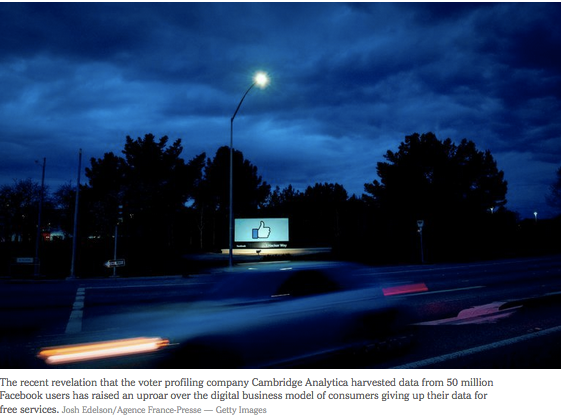People detailed their interests and obsessions on Facebook and Google, generating a river of data that could be collected and harnessed for advertising. The companies became very rich. Users seemed happy. Privacy was deemed obsolete, like bloodletting and milkmen.
Now, the consumer surveillance model underlying Facebook and Google’s free services is under siege from users, regulators and legislators on both sides of the Atlantic. It amounts to a crisis for an internet industry that up until now had taken a reactive, whack-a-mole approach to problems like the spread of fraudulent news and misuse of personal data.
The recent revelation that Cambridge Analytica, a voter profiling company that had worked with Donald J. Trump’s presidential campaign, harvested data from 50 million Facebook users, raised the current uproar, even if the origins lie as far back as the 2016 election. It has been many months of allegations and arguments that the internet in general and social media in particular are pulling society down instead of lifting it up.
That has inspired a good deal of debate about more restrictive futures for Facebook and Google. At the furthest extreme, some dream of the companies becoming public utilities. More benign business models that depend less on ads and more on subscriptions have been proposed, although it’s unclear why either company would abandon something that has made them so prosperous.




